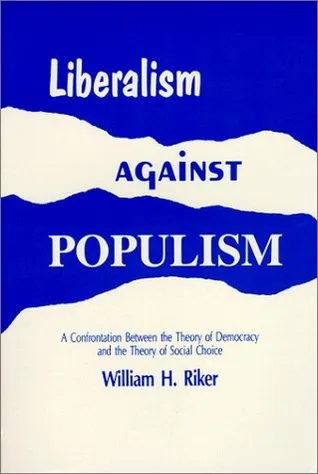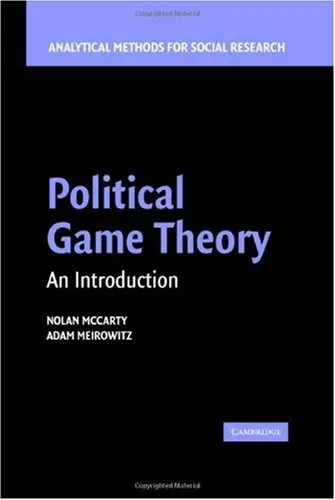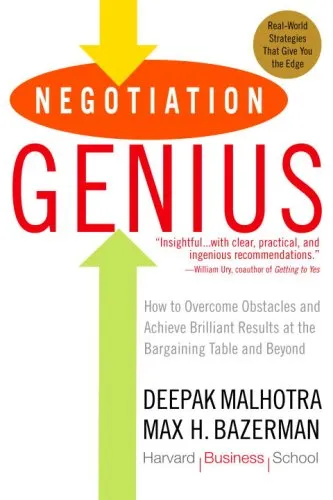Liberalism Against Populism: A Confrontation Between the Theory of Democracy and the Theory of Social Choice
4.5
Reviews from our users

You Can Ask your questions from this book's AI after Login
Each download or ask from book AI costs 2 points. To earn more free points, please visit the Points Guide Page and complete some valuable actions.Related Refrences:
Introduction to "Liberalism Against Populism: A Confrontation Between the Theory of Democracy and the Theory of Social Choice"
Authored by William H. Riker, Liberalism Against Populism is a profound exploration of the philosophical and mathematical tensions between the ideals of democracy and the mechanisms of social choice. The book delves into the theory of democracy, its aspirations, and how these ideals are often at odds with the realities of aggregating individual preferences into collective decisions. By juxtaposing liberalism and populism, Riker invites readers to critically evaluate the foundations of democratic principles and the challenges they face in practice.
This book provides a systematic and analytical investigation of the intersection of democratic theory and social choice theory, a field pioneered by economist Kenneth Arrow. It revolves around the disconnect between the moral and philosophical ideals that undergird democracy and the technical imperfections revealed by social choice theory, such as the inability to design a voting method that flawlessly translates individual preferences into group decisions. By addressing this central tension, Riker argues for the necessity of liberalism to safeguard individual rights against the flaws inherent in populist-majoritarian decision-making.
For scholars, students of political science, and those interested in democratic theory, this book provides intellectual tools to critically question the processes and systems of governance, urging readers to reconcile democratic ideals with the limitations of collective decision-making.
Detailed Summary of the Book
In Liberalism Against Populism, Riker embarks on a comparison of two competing frameworks within democratic theory: the populist ideal and the liberal ideal. The populist approach sees democracy as the embodiment of the "will of the people," while the liberalist perspective emphasizes the protection of individual freedoms, acknowledging the imperfections of collective decision-making.
Riker begins by establishing the philosophical foundations of democracy and then transitions into its mechanical shortcomings. Drawing heavily on social choice theory and Arrow’s impossibility theorem, he demonstrates how no voting system can perfectly reflect the preferences of individuals without violating some fundamental criteria. This insight becomes the bedrock for his criticism of populism, which presumes that democracy can effectively manifest a unified public will.
The book systematically reveals how voting systems are vulnerable to manipulation, cyclical preferences, and non-transitive outcomes. Riker argues that these flaws necessitate a shift away from a naive populist view of democracy. Instead, he advocates for a liberal democracy, where the emphasis is placed on limiting government power and ensuring the protection of individual rights, as opposed to attempting to perfect an inherently imperfect system.
Riker masterfully intertwines theoretical insights with practical implications, highlighting how democratic systems function in the real world. By illustrating how political strategies, agendas, and voter behavior align with his theoretical framework, Riker provides a comprehensive critique of democratic ideals through the lens of social choice theory.
Key Takeaways
- Democracy, in practice, cannot perfectly reflect the "will of the people" due to the inherent limitations of collective decision-making as demonstrated by social choice theory.
- Populism, which hinges on the presumption of a unified public will, is fundamentally flawed when subjected to analytical scrutiny.
- Liberal democracy offers a more pragmatic and sustainable approach to governance by emphasizing individual rights and constitutional safeguards over the pursuit of idealized collective outcomes.
- Voting systems are vulnerable to strategic manipulations, cyclical preferences, and inconsistencies, which challenge the integrity of democratic processes.
- A thorough understanding of the mechanics of democracy is essential for crafting informed critiques and designing systems that work within the constraints of social choice theory.
Famous Quotes from the Book
"Democratic choice is not and never can be a perfect and complete embodiment of the will of the people."
"It is liberalism, not populism, that provides a safeguard against the tyranny of the majority."
"Social choice theory reveals the fundamental flaws in our attempts to make collective decisions while maintaining individual autonomy."
Why This Book Matters
William H. Riker’s Liberalism Against Populism is a cornerstone text in the study of democratic theory, offering a unique perspective grounded in the analytical rigor of social choice theory. The book is invaluable for anyone seeking to challenge the romanticized notions of democracy and develop a more nuanced understanding of its strengths and limitations. By bridging political theory with mathematical frameworks, Riker’s work equips readers with tools to critically evaluate the systems of governance they live under and consider the trade-offs inherent in any collective decision-making process.
Beyond academic circles, the book's insights hold significant implications for policymakers, advocates, and citizens who engage with democratic systems. It challenges readers to reflect on their beliefs about democracy, urging them to balance idealism with practicality. In an era of increasing polarization and populist pressures, Liberalism Against Populism remains as relevant today as it was when first published, making it an enduring contribution to political philosophy and social science.
Free Direct Download
You Can Download this book after Login
Accessing books through legal platforms and public libraries not only supports the rights of authors and publishers but also contributes to the sustainability of reading culture. Before downloading, please take a moment to consider these options.
Find this book on other platforms:
WorldCat helps you find books in libraries worldwide.
See ratings, reviews, and discussions on Goodreads.
Find and buy rare or used books on AbeBooks.
1409
بازدید4.5
امتیاز0
نظر98%
رضایتReviews:
4.5
Based on 0 users review
Questions & Answers
Ask questions about this book or help others by answering
No questions yet. Be the first to ask!














